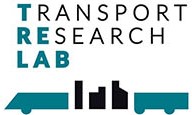Energy Efficiency in the Transport Sector: Policy Evolution in some European Countries
In the last years Energy Efficiency (EE) has become an important issue in the public policy makers’ agenda due to ambitious objectives of the European Commission to reduce energy consumption by 20% in 2020. Many countries have adopted state-level EE programs targeted to include Energy Saving (ES) policy mixes in different sectors including transportation that is among the most energy intensive ones. The aims of this paper are to: i) report briefly the macro-areas of state-level transport EE policies related to the transport sector, ii) verify the level of implementation of these policies among some European countries, iii) highlight, for each country considered, the EE measures adopted up to 2007 and compare the results obtained, iv) evaluate the implementation of EE transport successful measures adopted by each respective National Energy Agency (NEAs), and finally v) compare the main results deriving from EE policy implementation. In particular, in this last objective we adapted the good practice policy mix framework for car passenger transport proposed by the AID-EE Project at the information obtained from countries’ National Energy Programmes (NEPs) updated to 2007.


